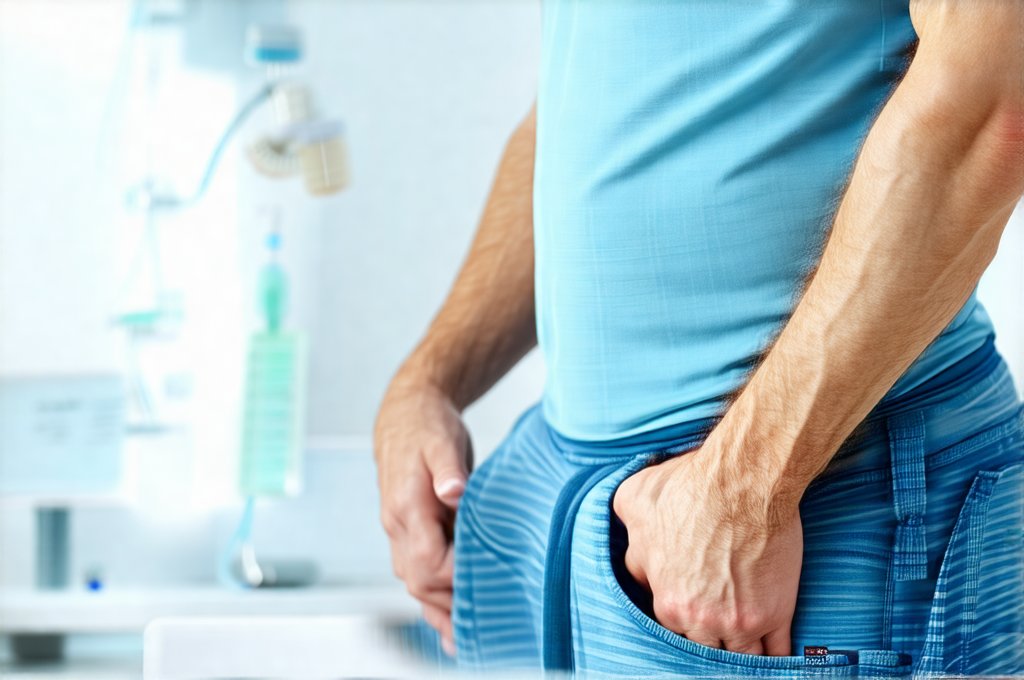Our modern lives often demand relentless schedules, blurring the lines between work and rest. This constant pressure can significantly disrupt our natural biological rhythms – the circadian rhythm – leading to fatigue, sleep disturbances, and even impacting bladder function. A healthy circadian rhythm is fundamental not just for feeling rested but also for optimal bodily functions, including a stable and predictable bladder. Simultaneously, many people experience frustrating issues with bladder control or frequency, which can be exacerbated by stress and disrupted routines. This article explores how intentional weekend activity plans can work synergistically to rebalance your internal clock and promote bladder harmony, offering practical strategies to reclaim both restful sleep and confident bodily function. It’s about building a restorative rhythm into your downtime, rather than filling it with more of the same frantic energy that causes imbalance in the first place.
The connection between circadian rhythm disruption and bladder issues might not be immediately obvious, but research increasingly points to its significance. When our internal clock is off, hormonal regulation suffers, stress levels rise, and the nervous system becomes overly sensitive – all factors that can impact bladder control and lead to urgency or frequency. Conversely, a well-regulated circadian rhythm supports healthy hormone production, reduces stress, and promotes a calmer nervous system, creating an environment conducive to optimal bladder function. The goal isn’t necessarily about ‘fixing’ a problem; it’s about proactively supporting your body’s natural systems through mindful weekend routines that prioritize rest, gentle movement, and consistent timing. This holistic approach can empower you to regain control and improve your overall wellbeing.
Reclaiming Your Weekend: Circadian Reset Strategies
The foundation of rebalancing your circadian rhythm lies in consistency, even (and especially) on weekends. It’s tempting to sleep in excessively or stay up late catching up on lost time, but these habits actually reinforce disruption. A gradual shift towards a more regular sleep-wake cycle is key. Think about your weekday schedule and aim for wake-up times that are within an hour of your usual weekday timing, even on Saturdays and Sundays. This doesn’t mean sacrificing leisure; it means structuring your weekend around consistent timings.
Consider incorporating “light therapy” into your routine, particularly in the mornings. Exposure to bright light (natural sunlight is best) shortly after waking up helps suppress melatonin production and signals to your body that it’s time to be awake. If natural light isn’t available, a light therapy lamp can be an effective substitute. The timing matters; earlier exposure is more impactful for resetting your clock. Avoid excessive blue light from screens in the evening as this interferes with melatonin production and makes falling asleep harder.
Weekend mornings shouldn’t necessarily be about frantic activity. Instead, prioritize mindful awakening. This could involve gentle stretching, meditation, reading a book (a physical one!), or simply enjoying a quiet cup of tea without rushing. Avoid checking work emails or engaging in stressful activities first thing in the morning. The goal is to start your day calmly and intentionally, setting a positive tone for the rest of the weekend – and preparing your body for restorative sleep later on. If you’re experiencing frequent bathroom trips, exploring bladder pain patterns can be helpful.
Gentle Movement & Bladder Support
Physical activity plays a crucial role in both circadian rhythm regulation and bladder health. However, intense workouts or strenuous exercise can sometimes exacerbate bladder issues. The focus should be on gentle movement that supports overall wellbeing without putting excessive strain on your system. Activities like walking, yoga, swimming, or tai chi are excellent choices. These movements not only promote physical health but also reduce stress and improve circulation, both of which benefit bladder function.
Hydration is obviously vital for bladder health, but timing matters. Avoid large fluid intakes immediately before bedtime to minimize nighttime awakenings. Spread your fluid intake evenly throughout the day, rather than consuming most of it in one go. Listen to your body’s signals and drink when you’re thirsty. Be mindful of diuretic beverages (coffee, tea, alcohol) which can increase urine production and potentially exacerbate bladder urgency.
Consider incorporating pelvic floor exercises (Kegels) into your routine. These exercises strengthen the muscles that support your bladder and urethra, improving bladder control and reducing leakage. It’s important to do them correctly; consult a physical therapist or healthcare professional for guidance on proper technique. Even short, regular sessions of Kegel exercises can make a significant difference over time. If you notice area tension after activity, this is something to discuss with your doctor.
Mindful Weekend Meal Planning
What you eat significantly impacts both your circadian rhythm and your bladder function. Avoid heavy, sugary meals close to bedtime as they disrupt sleep and can contribute to bladder irritation. Focus on whole, unprocessed foods that provide sustained energy and support overall health. Include plenty of fiber in your diet, as constipation can put pressure on the bladder.
Planning your weekend meals ahead of time can help you make healthier choices and avoid impulsive snacking. Prepare meals at home rather than relying on takeout or processed food. Experiment with recipes that incorporate bladder-friendly foods like blueberries (antioxidants), pumpkin seeds (magnesium), and cucumbers (hydrating). Pay attention to how different foods affect your bladder and adjust your diet accordingly – keeping a food diary can be helpful.
Consider incorporating time-restricted eating into your weekend routine. This involves limiting your eating window to a specific timeframe each day, which helps regulate your circadian rhythm and improve metabolic health. For example, you might choose to eat all your meals within an 8-10 hour window. This practice can further reinforce the body’s natural rhythms and promote restful sleep. It’s important to understand that weekend habits can play a big role in your overall rhythm.
Creating A Tech-Free Zone
The constant stimulation from electronic devices disrupts our circadian rhythm and increases stress levels. Designate specific periods of time on weekends where you disconnect from technology entirely. This could be during meals, before bedtime, or for several hours throughout the day. Create a tech-free zone in your bedroom to promote restful sleep.
Replace screen time with activities that nurture your mind and body. Read a book, listen to music, spend time in nature, engage in hobbies, or connect with loved ones. These activities provide mental stimulation without the negative effects of excessive screen exposure. Consider practicing mindfulness or meditation techniques to reduce stress and promote relaxation.
Prioritize digital detox even for short periods. Putting your phone on “do not disturb” mode for a few hours can significantly reduce anxiety and allow you to fully disconnect from work and other stressors. This dedicated downtime allows your nervous system to calm down, which in turn supports bladder function and promotes restorative sleep.
Prioritizing Relaxation & Stress Reduction
Chronic stress is a major disruptor of both circadian rhythm and bladder health. Incorporate relaxation techniques into your weekend routine to reduce stress levels and promote mental wellbeing. This could include yoga, meditation, deep breathing exercises, or spending time in nature. Find activities that you enjoy and that help you feel calm and centered.
Consider scheduling dedicated “relaxation time” each day of the weekend. This isn’t about being lazy; it’s about intentionally carving out space for self-care. It could involve taking a long bath, reading a book, listening to music, or simply doing nothing at all. The key is to disconnect from stressors and allow yourself to fully relax.
Remember that rest is not the enemy of productivity. In fact, adequate rest enhances cognitive function and improves overall performance. A well-rested body and mind are better equipped to handle stress and maintain optimal bladder function. Prioritizing relaxation isn’t a luxury; it’s an essential component of a healthy lifestyle. If you notice pain shifting, consulting your doctor is important to rule out other causes. Also, consider how fitness plans can support bladder health.





















